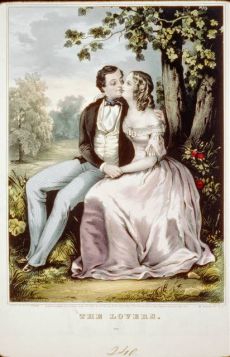The Psychology of Love
St. Valentine’s Day is fast approaching, prompting us to wonder…what can psychological research tell us about love?
Quite a lot, as it turns out!
Whether you’re embracing romance and celebrating love this weekend or carrying on with business as usual, consider this: Love may be defined, experienced and expressed in many ways, but it can also be studied empirically through psychological research!
Here are a few examples of how psychologists study love…
1. The Psychology Of Loves That Last A Lifetime
The trifecta of a romantic relationship — intense love, sexual desire and long-term attachment — can seem elusive, but it may not be as uncommon or unattainable in marriages as we’ve been conditioned to think. The science tells us that romantic love can last — and more than we often give it credit for.
Click here to read more…
2. Head Over Heels: The Physical Effects of Falling in Love
Is the link between the brain on love and the brain experiencing mental illness more than just the stuff of Shakespeare and The Notebook? A 2005 study suggests that the pain of being in love should be given more credence by mental health professionals. Here’s why…
Click here to read more…
3. 10 Psychology Studies Every Lover Should Know
From the initial moment of attraction to growing old together, here are 10 psychology studies that all lovers should know…
Click here to read more…
Psychologists may lack the eloquence of poets, but through empirical research, we can study the nature of love systematically. We can observe people in different situations, interview them about their life experiences and develop questionnaires to investigate people’s attitudes and behaviors. This way, definitions of love are drawn not only from personal opinion but from scientific investigations.
Click here to read more…
Happy St. Valentine’s Day!
Barbara and Conor


